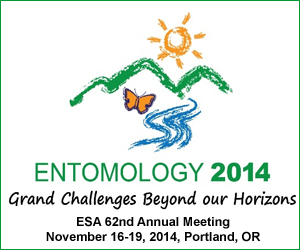Effects of parasitisim on primitively eusocial host genome: Xenos vesparum hijacks genomic machinery to cause asocial behavior in Polistes dominula?
Effects of parasitisim on primitively eusocial host genome: Xenos vesparum hijacks genomic machinery to cause asocial behavior in Polistes dominula?
Wednesday, March 12, 2014: 10:06 AM
Dubuque (Des Moines Marriott)
In the interest of elucidating parasitic effects on host genome, we examined the relationship between the primitively eusocial paper wasp, Polistes dominula, and its obligate endoparasite, Xenos vesparum. This relationship is thought to be useful for this purpose as it appears that X. vesparum exerts control over cryptic physiological and behavioral toolboxes involved in host caste-determination in ways which presumably benefit the parasite. We used RNA-sequencing data coupled with qRT-PCR validation to see if X. vesparum-infested females display a novel phenotype which professes characteristics from two distinct castes. We found that stylopized females, despite sharing numerous physiological characteristics with members of the worker caste, have similar expression patterns to those of gyne caste.


